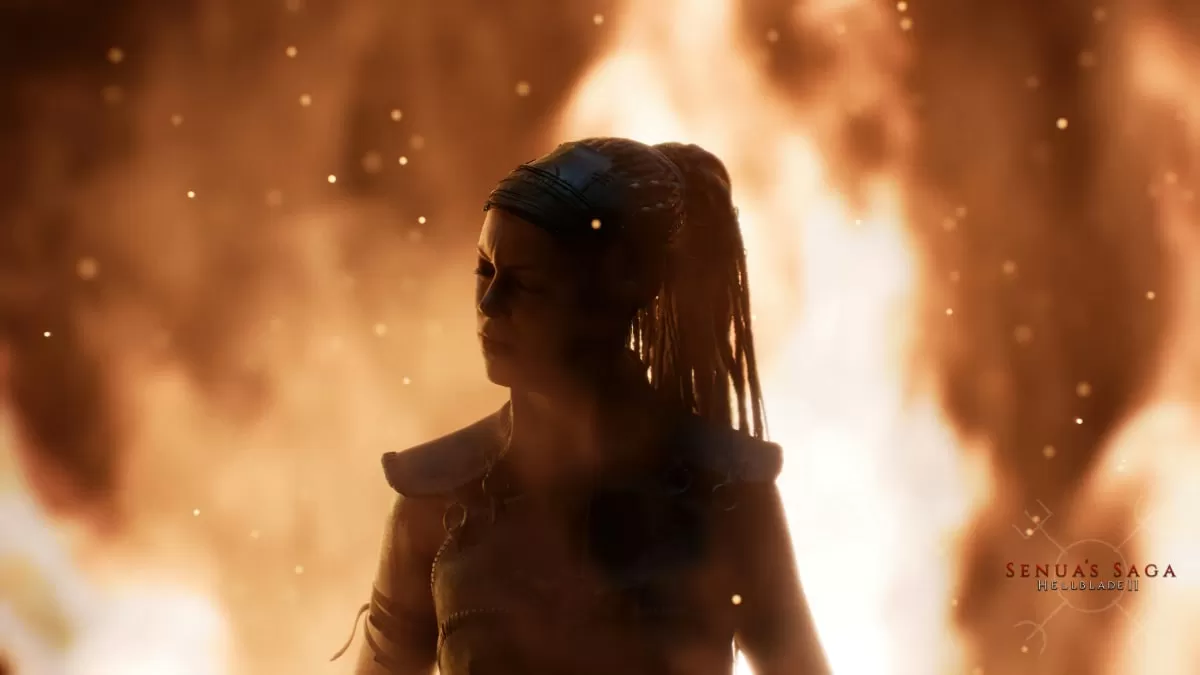Senua’s Saga: Hellblade II is set to be one of the most anticipated video game releases of the year, and for good reason. Developed by Ninja Theory, the sequel to 2017’s critically acclaimed Hellblade: Senua’s Sacrifice promises to push the boundaries of storytelling in video games even further, eschewing traditional narrative beats and tropes in favor of a more complex and clouded tale about guilt, confrontation, and the corrupting powers that can change a person beyond recognition. Simply put, it’s a flawed, yet uncompromising cinematic masterpiece in the world of video games.
From the moment the announcement trailer for Hellblade II was released, it was clear that this game was going to be different. Instead of showcasing epic battles, grandiose landscapes, or flashy gameplay, we were treated to something much more intimate and haunting. The trailer depicted the main character, Senua, standing on a cliff in the midst of a raging storm, covered in scars and tattoos that told the story of her troubled past. Her voiceover was a chilling reminder of the demons she has faced and the ones that still haunt her. It was an unconventional approach, but it immediately piqued the interest of gamers and critics alike.
And this unconventional approach carries over into the gameplay and narrative of the game. Unlike most video games, Hellblade II does not rely on a linear storyline with clear objectives and predictable twists. Instead, it presents a more complex and ambiguous narrative that forces players to question their own perception of reality. Playing as Senua, who suffers from psychosis, players are constantly bombarded with conflicting voices and hallucinations, blurring the lines between what is real and what is not. It’s a bold move that could easily alienate some players, but it ultimately adds an immersive and thought-provoking layer to the game.
The game also tackles heavy and often taboo subjects that are rarely explored in the world of video games. Guilt, trauma, and mental illness are all themes that are central to the story of Hellblade II. Through Senua’s journey, we witness how these issues can shape and drive a person to the point where they are unrecognizable from their former self. It’s a powerful and raw depiction that is not often seen in video games, and it’s a testament to the developers’ willingness to push boundaries and challenge the norms of the industry.
But what truly sets Hellblade II apart from other video games is its uncompromising and unapologetic commitment to being a cinematic experience. From the stunning visuals to the hauntingly beautiful soundtrack, every aspect of the game is meticulously crafted to create an immersive and emotionally charged experience. It’s clear that the developers have paid close attention to detail, from the authentic portrayal of Norse mythology to the accurate representation of mental illness. The result is a game that not only looks and sounds stunning, but one that also evokes a range of emotions from its players.
Of course, no game is without its flaws, and Hellblade II is no exception. The combat system, while fluid and satisfying, can become repetitive and tedious at times. Additionally, some of the puzzles and boss battles can feel forced and lack the same level of polish as the rest of the game. However, these flaws are minor in the grand scheme of things and do not take away from the overall experience of the game.
Senua’s Saga: Hellblade II is not just a video game, it’s a work of art. It challenges the norms of the industry and pushes the boundaries of what a video game can be. It’s a cinematic masterpiece that engages players in a way that is rarely seen in the world of gaming. It forces us to confront uncomfortable truths and explore complex themes, all while delivering an immersive and emotional experience.
In a time where video games are often criticized for being shallow and mindless, Hellblade II stands out as a prime example of the medium’s potential for thought-provoking and meaningful storytelling. It’s a bold and uncompromising vision that deserves recognition and praise. So mark your calendars, because Senua’s Saga: Hellblade II is set to be a flawed, yet uncompromising cinematic achievement in the world of video games that should not be missed.






